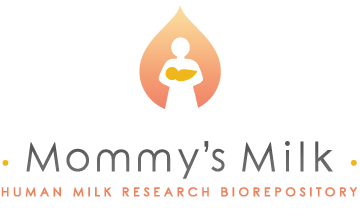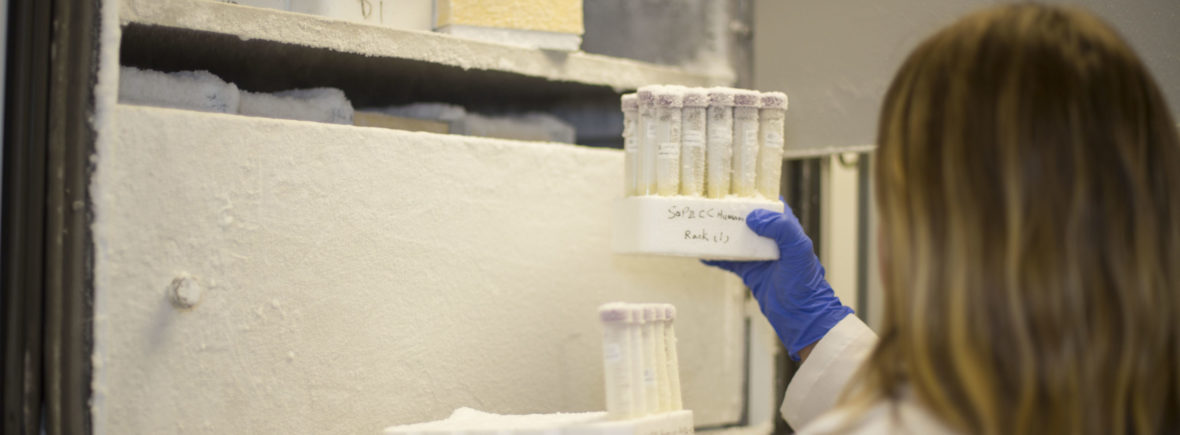Donate a Milk Sample to the Human Milk Biorepository
Since 2014, we have been collecting human milk samples and de-identified clinical data from lactating individuals across the U.S. These samples and data can be accessed by researchers to answer critical questions about human milk and its effects on infant and child health. Our biorepository depends on lactating parents providing a milk sample for future research projects. Did you know, two ounces of human milk can fuel 15 research studies?!
Join a Study
Help Grow the UC San Diego Human Milk Biorepository
The UC San Diego Human Milk Biorepository (HMB) is a research project that started in 2014. It collects and stores donated human milk to help scientists learn more about how breast milk supports babies’ health. So far, we’ve collected over 110,000 samples from more than 3,400 people who are breastfeeding or pumping. Most of the milk we’ve collected comes from non-Hispanic White people with middle to high incomes. We want our collection to better reflect the full diversity of people who are lactating in the U.S. That’s why we’re looking for new participants from all backgrounds to join the study.
We’re also looking at how different payment amounts might affect whether people sign up and complete the study.
Motegrity® (prucalopride)
Our team is examining whether Motegrity® (prucalopride), a medication taken for the treatment of functional constipation in adults, can be found in human milk. We’re looking for lactating individuals who are currently taking Motegrity®. Participation in this research study includes phone interviews, self-collection of human milk samples at different time points over a 24-hour period before and after taking a dose, questionnaires about baby’s growth and development, and releasing baby’s medical records. Volunteers receive up to $125 for completing the study.
PTN CUDDLE Study: Safety of Commonly Used Drugs in Lactating Women and Breastfed Infants
It is common for new mothers to have symptoms or medical conditions that must be treated with drugs. The CUDDLE study aims to identify safe dosing levels of common medications for both mom and the breastfed baby by tracking the transfer of the medication through human milk. Our study is enrolling persons with babies under 6 months who are currently taking a medication of interest as part of their routine care. Participants must be located in San Diego area for a one hour in-clinic visit. Below is the current list of medications of interest:
Amoxicillin
Buprenorphine (Belbuca, Brixadi, Buprenex, Butrans, Sublocade, and Subutex)
Cyclobenzaprine (Flexeril®, Amrix®)
Duloxetine (Cymbalta, Yentreve)
Hydrocodone (Vicodin®, Lortab®, Lorcet-HD®, Hycodan®, Vicoprofen®)
Levetiracetam (Keppra, Roweepra, and Elepsia XR)
Paroxetine (Aropax, Paxil, Pexeva, Seroxat, Sereupin and Brisdelle)
Trazadone (RALDESY™)
Venlafaxine (Effexor®)
Details About Our Research
Learn more about how you can get involved and request human milk samples with associated clinical data points for your research project.
Clinical data points that are collected include:
- Maternal Age
- Race
- Ethnicity
- Education
- Income
- Primary Language
- Height
- Weight
- Preterm Birth
- Delivery Mode
- Child Birth Weight, Length and Head Circumference
- Child Apgar Scores
- Child Age
- Child Current Weight, Length and Head Circumference (at the time of the milk sample)
- Pregnancy History (Gravidity, Parity, SAB,TAB)
- Personal Medical History
- Family Medical History
- Lactating History (Lactating History and Duration)
- Child Eating Habits (EBF, Formula, Solids)
- Pediatric abnormalities
- Adverse Reactions
- Maternal sleep habits
- Maternal exercise habits
- Maternal exposures (dose, frequency, dates for 14 days prior to collection)
- Milk sample collection conditions
- EPDS score
- STAI score
- PSS-10 score
- Food Frequency Questionnaire
- ASQ
- CDI
- ITSEA
- MCHAT

